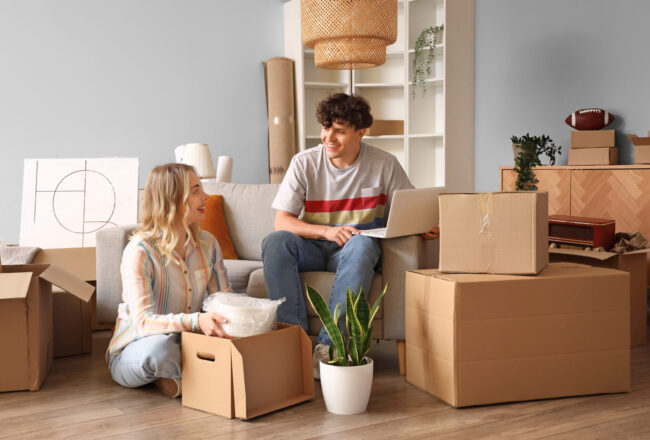When we plan to change our place of living, our minds twirl with worry and excitement at the same time. After all, moving to a new home is quite stressful, and also a wonderful change. But is there a way to overcome that stress and focus on your journey ahead with a gleam in your eye?
The US is a vast country, and people here tend to be on the move periodically. An average American will go through a relocation more than ten times during a lifetime, and many will leave their state and relocate to another state. And different reasons to move drive us to another place – we move for love and take a big step forward in our relationship. And we may move for a job because there’s a career opportunity we simply couldn’t say no to. That’s why we’ve prepared a list of things to do when moving into a new home for a smooth transition.
#1 Moving to a New Home Can’t Get Started Without a Binder and a To-Do List
Packing our stuff and leaving isn’t easy, and many things worry us – the cost of interstate relocation and different interstate moving services, but also the fear of forgetting to do something essential. Relocations are no child’s play, and no matter how well prepared we think we are, without a proper organization, we’re kinda doomed. Well, not literally, but skipping a few crucial steps can bring headaches, adjustment insomnia, and unwanted complications.
We might forget to bring relocating essentials for the first few days in our future abode or to turn off heating in our old house. That’s where a binder comes in handy, to enable you to move efficiently in the best possible way. Keep in mind that it should contain a checklist for relocating to another state where you’ll list all your tasks, contracts, receipts, lease, contact information for utility providers (gas, water, electricity,) and everything else that’s vital for your move.
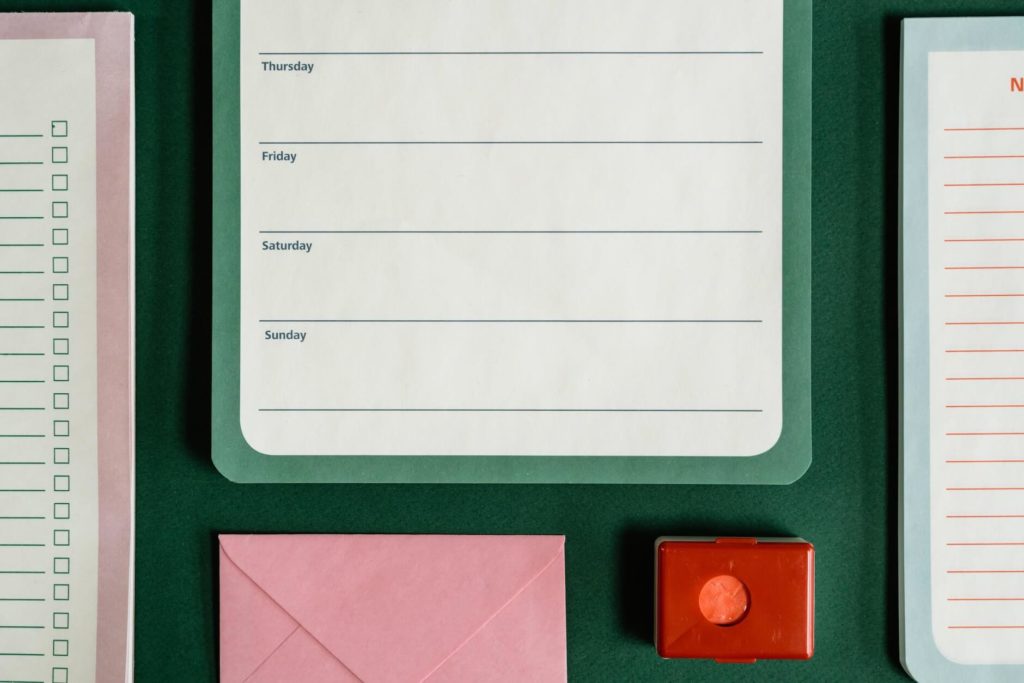
#2 Determine the Amount You’ll Need in Your Budget
Although the financial talk is the most dreaded one for some people, you can’t just go blindly into preparation without determining how much money you’ll need. So, one of the first steps, when you’re trying to figure out what to do when moving into a new home, is to set aside an amount required to cover all the expenses. Determine whether you’ll invest in packing services, ship your car through auto transport services, how much you’ll need for a deposit or a downpayment, and consider leaving a sum for unexpected expenses (like some cash to tip movers).
Call State to State Movers and Ask For a Free Quote
The next stop on your to-do list is hiring movers. It’s a fact that you can move all by yourself, but once you put all the expenses down on paper (gas for a rented truck, lodging, and food along the way, you will probably choose professional movers. But finding a reliable company isn’t as easy as it looks at first glance. If you can’t get any recommendations from your friends or family, search for them online, and then be thorough in your research. Look at the reviews from their customers, and check if there have been any name changes. It could be a sign of a fraudulent past. But once you narrow your picks down to five companies, contact them for a free estimate and choose the one that suits you. Relocating with professionals is a wiser choice because they’ll take good care of everything you own, from furniture to fragile belongings, and they’ll pack a truck the right way.
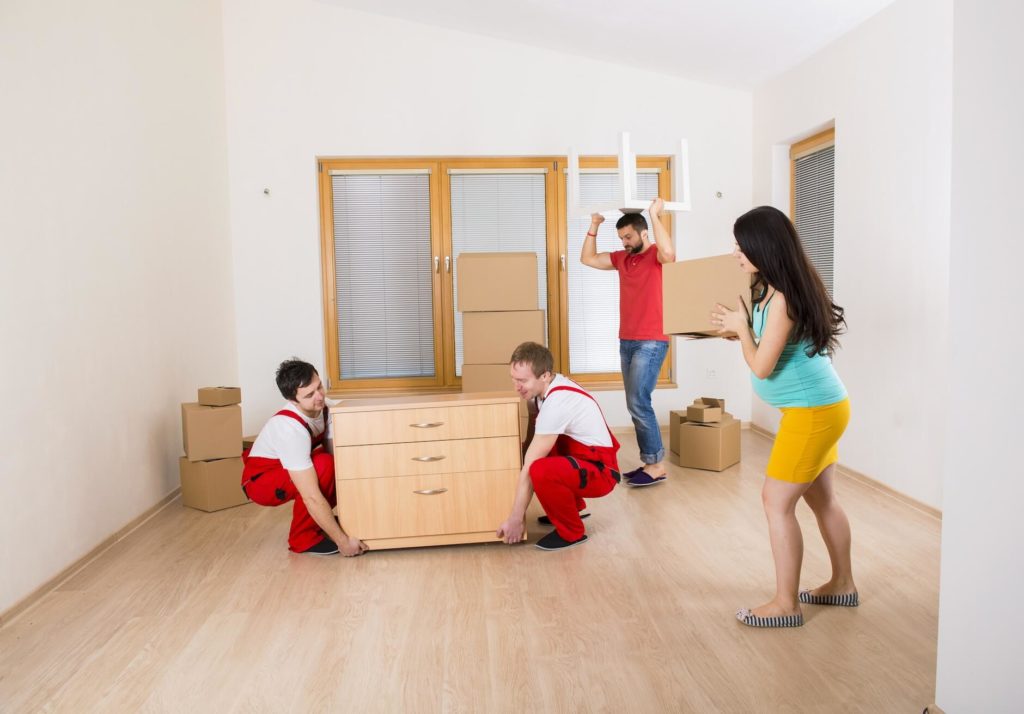
#3 Figure Out Who to Notify of Your Change of Address
Before leaving your current residence and heading on to the next, you should determine who to notify. You can start with the USPS because if you skip this step, the subsequent house owners will have to look for ways to stop getting mail for previous residents, and you won’t be getting any mail at your future address. Remember to notify any government agencies, insurance providers, your bank, and other institutions to let them know you’re going to change your address.
An Important Part of Your Notifying List – Utility Companies
Many people postpone this step until they completely forget to do it – you need to transfer utilities before you change your address. Basic utilities like electricity, gas, and water should be disconnected when you leave and also connected in your future abode the moment you step in. You can call the companies and agree on the date several weeks before your move-out date. If you skip this, just imagine ending up at another address without running water so you can shower or electricity to turn the water heater on.
Contact All the Other Providers
As much as having basic utilities turned on in your future abode, modern times also require modern services. That’s why it’s also essential to contact your phone, cable, and internet provider and get your connection on time. This is especially important if you’re a remote worker and you need internet access the moment you move in.

#4 Declutter Before You Pack Your Items
Purging your residence is a necessary step in more ways than one. First of all, there are some items movers won’t move, so you should contact them for a thorough list to know what to get rid of. Even if you think that this step is something you don’t have enough time for, keep in mind that it’s one of the cheapest ways to move out of state. It’s simple – the fewer items you have for transporting, the lesser it will cost. If you carry on with decluttering, you can find some items you could sell. Search for the best tips on how to have a successful garage sale, and all the money you earn can be added to your budget. There are probably some things that you can donate to a charity that has been lying around the house unused.
Leave Furniture or Other Items in Storage, and Donate Other Things
If you don’t want to move furniture that’s bulky, but can’t throw it away either, you can rent a storage unit. Using a secure storage service is also brilliant if you want some time until you figure out how to arrange your future residence. Besides the things you’ve set aside for throwing away, and some items you deem unnecessary, set aside at least a couple of your belongings for donation.
You Can’t Pack Before You Buy the Packing Supplies
Before you get to packing, you should obtain all the packing materials required to box up and secure all your belongings. Here’s a list of what to buy:
- Get enough high-quality, sturdy boxes of all sizes. You’ll mostly use the medium ones, but ensure you have some smaller ones for heavy stuff and a few large ones. Sturdy boxes will keep your belongings safe so that you can have a proper stress-free move.
- Heavy-duty tape (and not the regular duct tape) will ensure your boxes are properly sealed and secured, and there won’t be any mishappenings.
- Get enough cushioning materials which you’ll use to wrap your belongings and stuff the empty space in each box to avoid shifting and damage. You should get bubble and plastic wrap, packing paper, foam peanuts, pool noodles, and furniture blankets.
- Before you start placing your stuff into boxes, get the proper tools that will allow you to be much more efficient. These are a high-quality tape dispenser, scissors, and a marker.
If you want to save up a bit, here’s where to get free boxes – you can scout your local retailers, liquor, or books stores, and they’ll probably be happy to give away some of their cardboards and other stuff you can use to pack. If you manage to grab some cardboard dividers, too, you’ll be able to securely pack glasses and also any other fragile items you have around your house.
Make Unpacking Easier With Labels for Moving Boxes
Want to know how to unpack after relocation in the most effortless way? Labeling the boxes as you pack them is one of the ultimate relocating hacks that only takes a minute to do and saves you from a lot of work after you move. You can label the packages by their contents or by the room to which they belong. If you have a bit more time, you can color code the boxes. Choose a color and designate it to a room, and then label each box packed in that room with the same color (you can use colorful washi tape for this.) When you arrive at your future residence, label the doors to each room, so the movers will unload boxes to where they belong to.
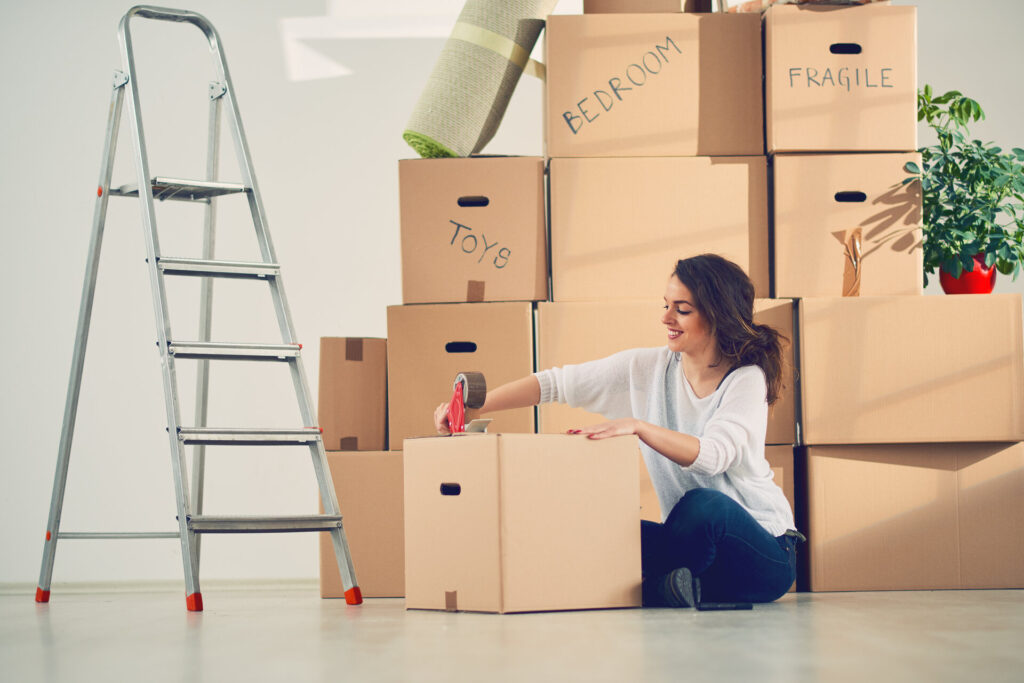
#5 Check if Any Repairs Are Needed
The next stop on your way to organizing your move is leaving your abode in a near-perfect condition. Before you leave your current place, you should inspect it and check if there are any repairs to be done. Handling this will help you, whether you’re a homeowner or a renter – homeowners will more quickly sell a spruced-up abode, and renters will get their deposit back. If you have only minor repairs to handle, you can do it by yourself. A paint job or any similar project doesn’t cost that much and will do wonders for a house. If there are any major repairs to be done, call in professionals. Renters will have to leave their apartments the way they were when they entered them.
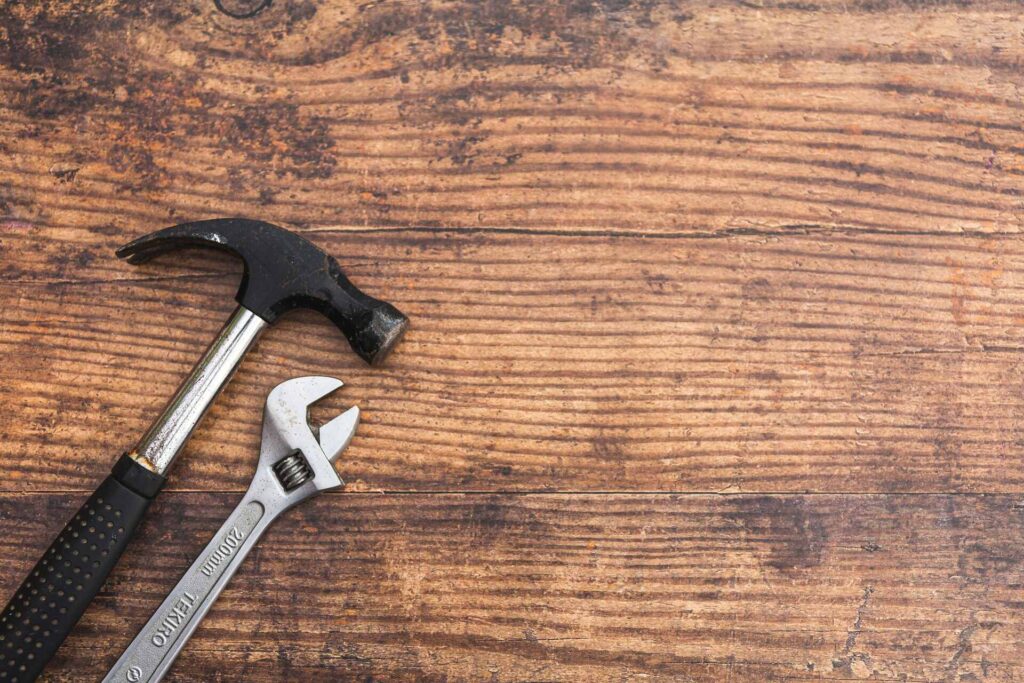
#6 Make Sure the House Is Clean and Tidy Before You Leave
One of the important things to do when relocating to another state is to leave the residence squeaky clean. You can do the cleaning in two ways – either from top to bottom or by room. You can even combine the two strategies. Obtain the best tools and chemicals to make the place shine, like gloves, bucket, and mop, dustpan, brush, microfiber cloth, and several types of detergents, cleaning solvents, disinfectants, polishes, and bleach.
Develop the Best Strategy for a Clean Home and Check Every Corner
After you’ve dusted the unreachable spots and removed any cobwebs from the house, enter the rooms and don’t leave until it shines. Pay special attention to the kitchen and the bathroom, as they tend to be the dirtiest. Make the sinks shine the most, and remove any mold thoroughly. Disinfect where needed; kitchen cooking surface and the whole bathroom should be sparkly. Do you need a deep clean motivation? We know we most certainly do, so watch the video below.
#7 in the End, What Brings Good Luck to a New Home?
Are you wondering what is the first day you should move into a new house? No matter which day you choose to move in, it will be the start of a fresh chapter in your life. If you’re considering what to buy when moving into a new home, don’t overdo it. Once you arrange your belongings around the abode, shop for decorations like candles, plants, and artwork. It’s the best way to make the new place you’ve feel homey.








